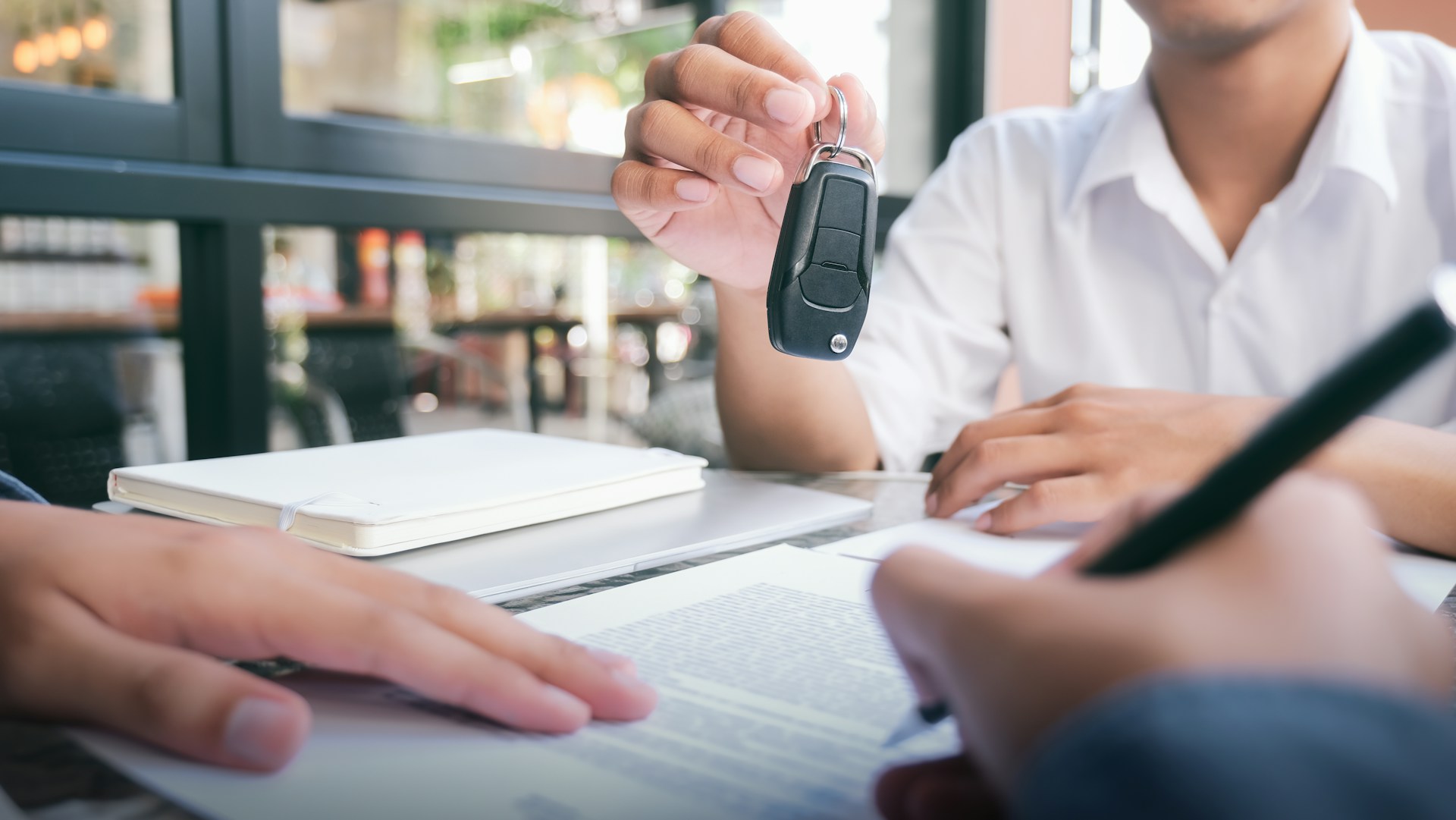
People use cashier’s checks for car transactions because they are secure, relatively fast, and cheap. Once the recipient deposits the check, the funds are usually available by the next business day. But that’s not the full story.
We’ll discuss the ins and outs of cashier’s checks as a payment method, the speed bumps you may encounter, and a cutting-edge alternative purpose-built for high-dollar transactions.
A cashier’s check (bank check or teller’s check) is issued by the payee’s bank and guaranteed by its funds. Since the funds are supplied by the bank, there is no risk that cashier’s checks will bounce, and they clear quickly. Speed and security make cashier’s checks a preferred payment method for:
In private auto transactions, buyers prefer cashier’s checks to carrying large quantities of physical cash. Sellers will usually only accept cashier’s checks since personal checks can bounce and certified checks are slightly riskier without an upside.
For lower-priced motorcycles, cash is a fine way to pay. When purchasing an entry-level bike or a used motorcycle for a few thousand dollars, physical cash is simple and immediate. The transaction can be completed on the spot without relying on technology or financial institutions.
When it comes to more expensive motorcycles, paying with physical cash presents some challenges:
The safest way to pay for a motorcycle in cash is to meet the seller at your bank, withdraw the money on the spot, and have a bank teller count and verify the bills to speed things up.
While rare, banks have the right to place a cashier’s check on hold. Some reasons they might do this include:
If the recipient’s account is in good standing and established, cashier’s checks are quickly cleared and funds enter the recipient’s account within a business day.
Pro Tip: To expedite processing, the recipient should avoid cashing the check through online banking. Otherwise, the check might be processed in a later batch or attract additional scrutiny.
To avoid cashier’s check fraud, the recipient should verify the check before completing the sale. To do this, they can:
Verification slows down the sales process but protects the recipient from scams.
In car transactions, sellers won’t transfer ownership until they are assured they have been paid. To expedite the process, follow these steps for a safe cashier’s check transaction:
With a little bit of coordination, the transaction can be completed in a day and the seller will get their funds within 24 hours.
Cashier’s checks, while secure, are relics of the pre-digital era. Here’s why they aren’t the best payment method for car transactions anymore:
Wouldn’t it be great if there was a payment method that offered the security of a cashier’s check with the speed and finality of a digital payment app?
DealNow is a mobile payment app that we purpose-built to streamline private-party car transactions. Save the paper and go digital to enjoy a better car payment method.
DealNow is more than a payment method. It is a one-stop platform for conducting fast, safe car transactions. Skip the cashier’s checks, and make a deal now.
The best payment method for private-party car sales is DealNow. Unlike checks and physical cash, DealNow enables instant, verified transfers of large amounts of money directly between buyer and seller.
DealNow secures transactions by:
With DealNow, you get the immediacy of cash with bank-level security. Funds are held in FDIC-insured accounts with easy offboarding to your regular bank.
Most financial institutions allow access to deposited cashier’s check funds after one business day.
If the bank suspects fraud or the depositor has suspicious account activity, large cashier’s check deposits might be held for review.
If you’re selling a car and you want instant access to your funds, use DealNow. Payments are instantly deposited in an FDIC-insured account with quick withdrawals to your regular bank.
Cashier’s checks don’t have legally defined maximum limits. Nearly all financial institutions will issue and allow the cashing of cashier’s checks over $10,000.
If you’d like to skip the bank visit during your next high-dollar transaction, try DealNow for instant, verified transactions without limits.
Cashier’s checks typically expire 90–180 days after being issued. Their expiration date depends on the issuing institution’s policies. In most cases, the recipient of a cashier’s check that expires can contact the issuing bank and order a replacement for a small fee.
It’s best to deposit cashier’s checks as soon as possible to avoid loss, theft, or expiration. You could also take a different payment approach during your next transaction. DealNow facilitates instant payments that never “go bad” or face chargeback risks.
If you purchased a cashier’s check and you haven’t given it to anyone or it was recently lost, you can contact your bank to cancel the check. Once a cashier’s check has been cashed, the bank can’t reverse the transaction.
There’s no universal maximum amount for cashier’s checks, but some banks have their own limits. Small banks and credit unions often cap cashier’s checks at $10k to $20k, but large banks can usually issue cashier’s checks for $1 million or more.
When accepting a check as payment, look out for these common signs of fraud:
Always verify the check with the issuing bank and wait for it to fully clear before releasing your vehicle. If something feels off, trust your instincts and proceed with caution.
A legitimate cashier’s check cannot have insufficient funds. Unlike personal checks, cashier’s checks are drawn directly from the bank’s reserves, not an individual’s account. When a cashier’s check is bought, the buyer provides the funds upfront, which the bank then guarantees.
This doesn’t mean cashier’s checks are immune to fraud. While the check itself can’t “bounce” due to insufficient funds, counterfeit or altered cashier’s checks can still be an issue. Always verify the check’s authenticity with the issuing bank before finalizing the sale.